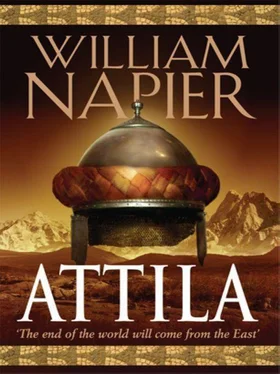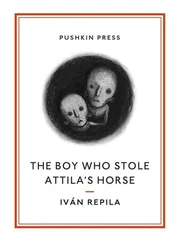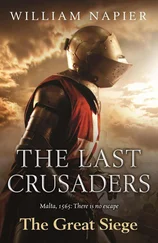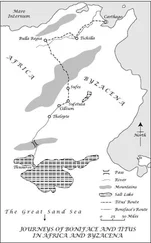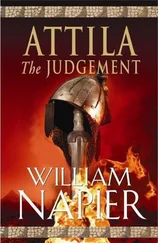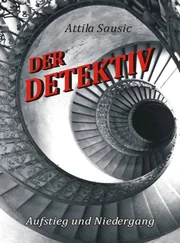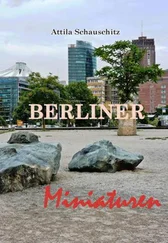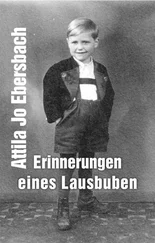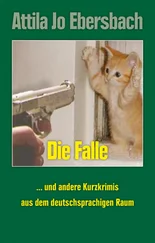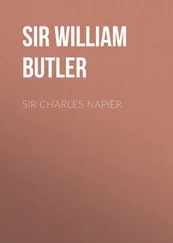William Napier - Attila
Здесь есть возможность читать онлайн «William Napier - Attila» весь текст электронной книги совершенно бесплатно (целиком полную версию без сокращений). В некоторых случаях можно слушать аудио, скачать через торрент в формате fb2 и присутствует краткое содержание. Жанр: Исторические приключения, на английском языке. Описание произведения, (предисловие) а так же отзывы посетителей доступны на портале библиотеки ЛибКат.
- Название:Attila
- Автор:
- Жанр:
- Год:неизвестен
- ISBN:нет данных
- Рейтинг книги:5 / 5. Голосов: 1
-
Избранное:Добавить в избранное
- Отзывы:
-
Ваша оценка:
- 100
- 1
- 2
- 3
- 4
- 5
Attila: краткое содержание, описание и аннотация
Предлагаем к чтению аннотацию, описание, краткое содержание или предисловие (зависит от того, что написал сам автор книги «Attila»). Если вы не нашли необходимую информацию о книге — напишите в комментариях, мы постараемся отыскать её.
Attila — читать онлайн бесплатно полную книгу (весь текст) целиком
Ниже представлен текст книги, разбитый по страницам. Система сохранения места последней прочитанной страницы, позволяет с удобством читать онлайн бесплатно книгу «Attila», без необходимости каждый раз заново искать на чём Вы остановились. Поставьте закладку, и сможете в любой момент перейти на страницу, на которой закончили чтение.
Интервал:
Закладка:
Attila snapped, ‘Rather better than the Romans keep their hostages, I think.’
Lucius was silent.
‘And who’s he?’ said Attila, jerking his head at Lucius’ silent companion.
‘Cievell Lugana,’ said the old man with the long grey beard. His eyes twinkled at the boy, not unkindly. ‘At least, that is what I am called today.’
Attila eyed him curiously, then shrugged and turned towards the camp. ‘Your son,’ he said. ‘And there’s another slave. They’re in the great pavilion of the king. At least, they’ll be sleeping round the back. Take them both – take Orestes, too, my slave.’
Aetius looked sharply at Attila, but Attila looked back calmly. ‘It is better for him,’ he said. ‘It will not be easy for me here henceforth.’
Lucius considered for a while and then said, ‘We’ll see.’
They left their horses tethered lightly to the wagon, and they crept in silence and darkness towards the camp of the Huns.
Cadoc was dreaming, huddled under a fleabitten horseblanket at the back of the king’s pavilion.
The old man who called himself Gamaliel, or Cievell Lugana, and by many other names, smiled over him and murmured, ‘Time to wake up, song-maker, bird-catcher, Dreamer of Dreams, of the line of Bran, with the words of the world on your lips… ’
Lucius knelt and shook Cadoc awake, and the boy opened his eyes wide, and flung his arms round his father’s neck. And they both wept, even as the father held his hand clamped over the boy’s mouth for silence.
When the little group of six emerged round the front of the king’s pavilion, there were torches burning, for the dawnlight was still dim and cold and grey. They were surrounded by a hundred warriors or more, arrows knocked to their bowstrings, arrowheads gleaming coldly in the torchlight. For though the camp of the Huns might stand without walls, no group of armed strangers could creep in under darkness and not be noticed by the keen-eyed spearmen on watch.
For the second time in a day and a night, Attila faced his uncle in defiance, but this time he was one of six and he had more to fight for than merely his own pride. Lucius had come on an unimaginable journey this far to take back his abducted son, and he would not let him go home empty-handed.
There was a breathless silence across the camp of the Huns, and over the natural arena formed by the ranks of watching tribespeople, spellbound at this moment of terrible drama. All eyes switched back and forth between the small figure of the boy Attila and the hulking, bear-skinned figure of his uncle, King Ruga. The crackling battle of wills taking place between them was almost visible in the air in its intensity.
‘Uncle… ’ began the boy at last.
‘You have led armed strangers into my kingdom,’ said Ruga. ‘You have shown them the way into my camp. You have brought them to the felt walls of my pavilion with their swords drawn. You would see me slain in my sleep like a beast, Attila?’
Attila tried to protest, but Ruga spoke over him. ‘You have betrayed the People, O my nephew and my blood. You have opposed my word, and you have shamed and humiliated me before all the warriors of the tribe.’
The boy never flinched, though by the law of the tribe any man there could have drawn a knife at any moment and slain him where he stood, for he was a pronounced traitor. But he did not stir.
Then King Ruga did a very strange thing. Slowly and, some who watched might have said, with profound sadness, he walked over to the boy, who remained unmoved and seemingly unafraid. The burly, full-bearded warrior-king reached out and laid his hands on the boy’s shoulders. He looked down at him with an expression that appeared to mingle anger, pride, sorrow and the deepest affection. And then he said, in a soft, deep, rumbling voice that few who strained to listen could hear, ‘Your brother Bleda is a fool, Attila.’
The boy looked up then.
Ruga held his shoulders more tightly. ‘I would have made you my heir,’ he whispered. He blinked his bleary eyes and said even more softly. ‘I would have given you everything. I would have given you my kingdom and my nation, and dominion over the steppelands from the Holy Mountains to the shores of the Roman River. For never will I have sons of my own, nor know another to match your matchless spirit. And now, instead, I should order you put to death… ’
Ruga turned away, and his broad, fur-clad shouders seemed to slump, like the curved, weakened shoulders of an old man.
‘Let them go,’ he said. ‘Let them all go – except Prince Attila.’
Just then, when it seemed that the ordeal was over and the grim sentence was passed, a blur of a figure came tumbling over in the dust towards the king, and sprang to his feet in the centre of the circle. It was Little Bird, and all his attention was on Gamaliel.
‘Why, father, do not set free this old fool here with the long grey beard!’ he cried. ‘For he knows too much, too much. He is come to torment me, to torment all of us, with his wise and grave old sayings, about how the gods are just. His words are like flies which bother my weary ears.’
Ruga turned back and stared in dim puzzlement at this encounter between his fool and the one among the strangers whom he had marked least.
‘If the gods are just, old fool,’ went on Little Bird, capering round the still and silent figure of Gamaliel, ‘they are also unjust. You forget, you forget, you grow old and muddle-headed in your wise and serious dotage. Do the gods weep to see the man on his cruel cross, with the Christians kneeling adoringly at his feet? They weep and they mourn, and then they turn round and bare their arses and fart in his bleeding face.’
Gamaliel only looked on, grave and unblinking, at the dancing, mocking Little Bird, and said never a word.
‘If God is a creator, He is also a destroyer. If God is a God of love, He is also a God of hate. You know it is true, old beardy fool, which is why you say nothing and cling to your flyblown old words of comfort and lies. Comfort and lies is all you dispense, old fool, like a quack of a doctor in the marketplace, selling flavoured mare’s piss for a panacea.’ Little Bird spun round on the spot and pointed at Attila. ‘Will the gods reach down and save the broken-hearted exile-boy sent away all unjustly under the grinning sky?’
‘Mind your words, fool,’ growled Ruga, but Little Bird paid him no heed.
‘They will not, and you know it. The exile-boy will ride broken-hearted away, and the gods will not reach down and save him, not until my mother gives birth to piglets, and the moon falls down from heaven. You know it is true, old beardy fool, and I speak the way of the gods. It is time you paid another visit to the Old Man of the Mountains, old wanderer, old fool. Your wits are grown flyblown and mouldy as a month-dead mule.’
Little Bird pointed unexpectedly at Cadoc, standing timidly near his father. ‘You are wise, dark-eyed boy. For he there loves his little sword, and he there loves his city, and he there holds the fate of the world in his ballbag, but you there hold the fate of the world on your lips. And words make the world, they do, for words are the movers and shakers of the world for ever.’
Attila and Orestes shivered at these last words, but Ruga stepped forwards and cried, ‘Enough!’ This untouchable shaman and fool, Little Bird, drove his mind to a spinning distraction sometimes.
‘It is never enough, my father!’ cried Little Bird, skipping across to where Ruga stood, and kneeling in exaggerated obedience. ‘Never enough!’ With that he curled up in the dust at the king’s feet, and appeared to fall fast asleep.
Ruga reiterated his commands, and not even Lucius or Gamaliel dared to argue with them. The king’s violent and uncertain temper was plain to see, even at his most bowed and sorrowful.
Читать дальшеИнтервал:
Закладка:
Похожие книги на «Attila»
Представляем Вашему вниманию похожие книги на «Attila» списком для выбора. Мы отобрали схожую по названию и смыслу литературу в надежде предоставить читателям больше вариантов отыскать новые, интересные, ещё непрочитанные произведения.
Обсуждение, отзывы о книге «Attila» и просто собственные мнения читателей. Оставьте ваши комментарии, напишите, что Вы думаете о произведении, его смысле или главных героях. Укажите что конкретно понравилось, а что нет, и почему Вы так считаете.
